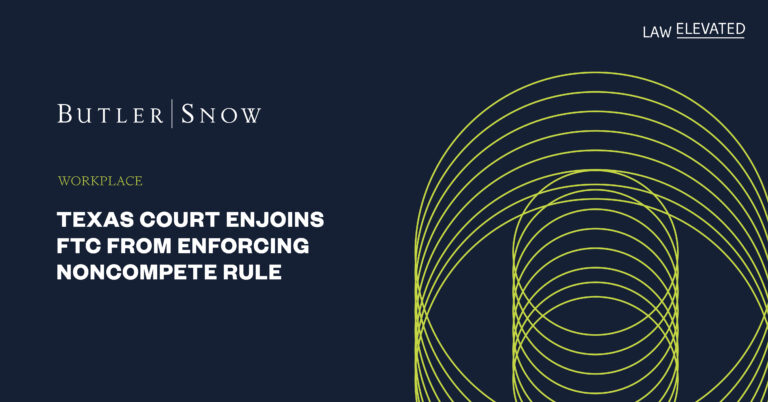As expected, a Texas federal court issued a ruling on August 20, 2024, declaring that the Federal Trade Commission’s (“FTC’s”) new rule purporting to ban nearly all noncompete agreements shall not “take effect on its effective date on September 4, 2024, or thereafter.” Importantly, U.S. District Court Judge Ada Brown issued a nationwide injunction precluding the FTC from enforcing the rule.
In a 27-page opinion, the court found that the FTC “exceeded its statutory authority in promulgating the Non-Compete Rule.” According to the court, “the questions to be answered is not what the Commission thinks it should do but what Congress has said it can do.” The court also found that “the Rule is arbitrary and capricious because it is unreasonably overbroad without a reasonable explanation.”
The most immediate consequence of this ruling is that employers may continue to rely on noncompetition agreements in place with their employees and may continue to require employees to sign such agreements, subject to state law requirements. Employers are also now off the hook from complying with the new rule’s notice requirement. Under the rule, employers would have been required to send written notices to employees by September 4, 2024, advising them that their noncompete restrictions were unenforceable. Given the court’s ruling—which applies to all employers nationwide—employers are not required to issue any such notices and they may conduct business as usual.
So what happens now?
An FTC spokesperson has indicated that the FTC is “seriously considering a potential appeal,” which would first need to be submitted to the U.S. Court of Appeals for the Fifth Circuit. Many believe, however, that the Fifth Circuit is unlikely to set aside the Texas court’s ruling and that the U.S. Supreme Court is even less likely to allow the rule to be revived. Although both of those courts have the authority to step in and issue an emergency ruling, the more likely scenario is that an appeal would take many months before it is resolved.
In the meantime, the FTC has suggested that it may target companies with abusive noncompete practices through its ordinary enforcement powers that exist independent of the new rule. Further the National Labor Relations Board General Counsel recently issued guidance suggesting that overbroad noncompete agreements violate Section 7 of the National Labor Relations Act. Companies that make use of noncompete and other restrictive covenant obligations should consider conferring with legal counsel to ensure their existing agreements and practices would not be considered overbroad, “abusive” or violative of applicable state law and consider any appropriate modifications.
